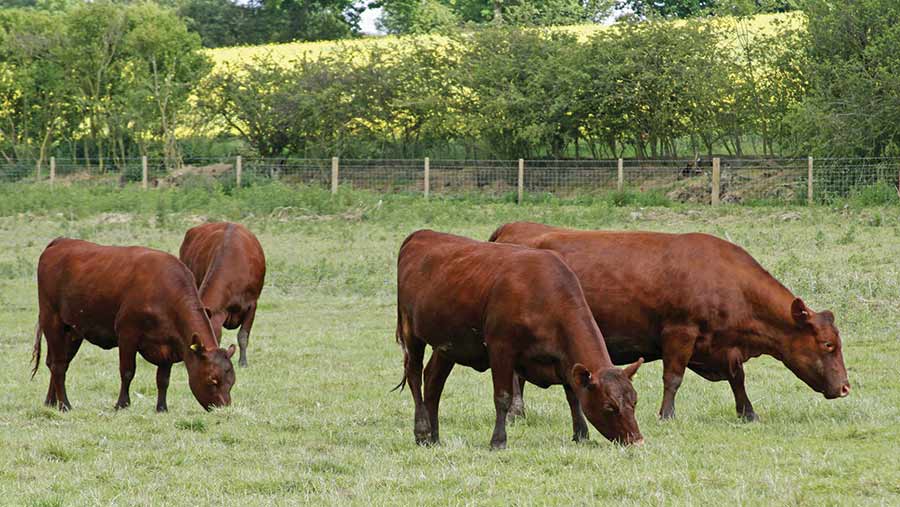What to do if your landlord decides to sell the farm
 © Ing Image
© Ing Image If you are a tenant farmer and your landlord decides to sell, there are several things to consider before deciding what to do.
The news of a sale can be very unsettling for tenants, but it could also provide new opportunities: tenants could buy out their tenancies by acquiring the freehold of their farms or negotiate a surrender of the tenancy for a premium.
The type of tenancy involved will determine the level of protection a tenant has.
See also: Practical advice for tenants buying their farms
“Typically, Agricultural Holdings Act (AHA) 1986 tenants, who have succession rights, would expect to see greater discounting from the vacant possession value compared to those under farm business tenancies (FBTs) governed by the Agricultural Tenancies Act 1995,” explains Duncan Sigournay, head of agriculture at Thrings.
The 1986 Act tenants have extremely strong tenure security and have the right to two successions if the tenancy was created before 12 July 1984, which could well result in the value of the holding being significantly reduced.
If it’s an FBT, tenants should check if the landlord can terminate the tenancy early through a break clause.
Professional advice
Duncan Sigournay, head of agriculture at Thrings, advises tenants take specialist valuation advice and speak with an accountant about the implications of any proposed agreements.
The tenant should seek professional advice on:
- The valuation and offer process – and check if the sale would be subject to reservations or overage/clawback. These are sale conditions where in certain circumstances at some later stage the buyer has to pay additional sums for the same piece of land.
- Legal title – and check for any onerous encumbrances.
- The implication of Capital Gains Tax, Stamp Duty Land Tax (in England) and Land Transaction Tax (in Wales).
Should I buy?
The number of farm tenants opting to either buy their farms or take a lump sum for surrendering their tenancy and allowing the farm to be sold with vacant possession has increased significantly through 2017, says Philip Meade from land agents Davis Meade.
He thinks this may be because landlords believe farmland prices have peaked.
Contrary to what some people may believe, there is no statutory right for tenants to buy their farm, he adds.
If given the chance to buy the farm, consideration should be given to how any tenant’s improvements are accounted for (you shouldn’t have to pay for them twice), as well as how the entitlements are treated (they usually belong to the tenant).
If money is to be borrowed to buy the farm, the lender will usually want to ensure that the property has no issues like asbestos or radon, so these tests and reports will need to be completed.
Some banks ring-fence credit facilities specifically for tenants to buy out their tenancies.
This tends to arise in the context of particularly large disposals, such as the one concerning the Crown Estate land near Taunton.
A sale with the tenant’s cooperation typically takes about six months. This process is not much quicker if the tenant is buying, because the tenant’s lender will still want to do all the due diligence checks.

Negotiating a deal
Mr Meade says there are “rule of thumb” formulas that give an indication of the sort of discount you can expect (20-40%), or the sort of surrender payment you could ask for (20-30%) of vacant possession value, but these are often too general to be helpful.
Other deals can involve part of the farm in lieu of a surrender payment, like the farmhouse or some land.
There are no hard and fast rules for these negotiations and, ultimately, the deal a tenant will arrive at with their landlord will depend on a number of factors, including the age of the tenant, the terms of the tenancy and why the landlord is seeking to do the deal.
If the farm is simply sold subject to the existing tenancy, the tenant will be notified in due course of the change in landlord. This change could present an opportunity to discuss future plans for the holding.
Q&A with Jeremy Moody, secretary and adviser to the Central Association of Agricultural Valuers
Does this alter or end my tenancy?
No. The landlord is simply selling his ownership of the land, with the benefits and obligations of the tenancy remaining unaltered. An AHA continues, protected by the law, and succession rights remain.
An FBT will continue for the agreed term. All end-of-tenancy compensation rights and the rent review timetable are unchanged.
A new owner might have a different approach to management, from investment decisions to whether an expiring FBT might continue or be renewed, and perhaps to negotiation of a surrender of the tenancy or sale to the tenant.
Does the landlord have to give me first refusal?
Not in England or Wales. However, only the sitting tenant can obtain vacant possession – all other buyers would get the land subject to the tenancy.
While each case will turn on its facts, a willing tenant might pay a better price, but not the full value of vacant land. Depending on what the tenant wants, there may be room for negotiation over buying just part of the holding.
Scottish law provides a legal framework for an AHA tenant’s right to pre-empt the sale, buying on a statutory valuation. An owner wishing to sell may often come to the tenant directly.
Should I bid?
It is entirely down to personal and business priorities as well as access to resources and borrowing.
On a purely commercial basis, the trade-off is between achieving the security of ownership with control of development prospects and the cost of purchase.
A secure 1986 Act tenancy gives the tenant security for the price of the rent without the burden of repaying any money borrowed; capital can then be used in the business rather than being tied up in land.
Are there tax issues if I buy?
You will pay stamp duty (Stamp Duty Land Tax in England, Land Transaction Tax in Wales, Land and Buildings Transaction Tax in Scotland). In some cases VAT may apply, which could give rise to cash flow issues.
If you have to sell part of the holding to fund the purchase, take advice to avoid being found to be dealing in land with liability to Income Tax.
The risk is that being seen in the business of dealing in land when profits would be liable to Income Tax – rather than CGT. If you already have a buyer for the land you need to offload, it might be better for them to buy that bit direct.
